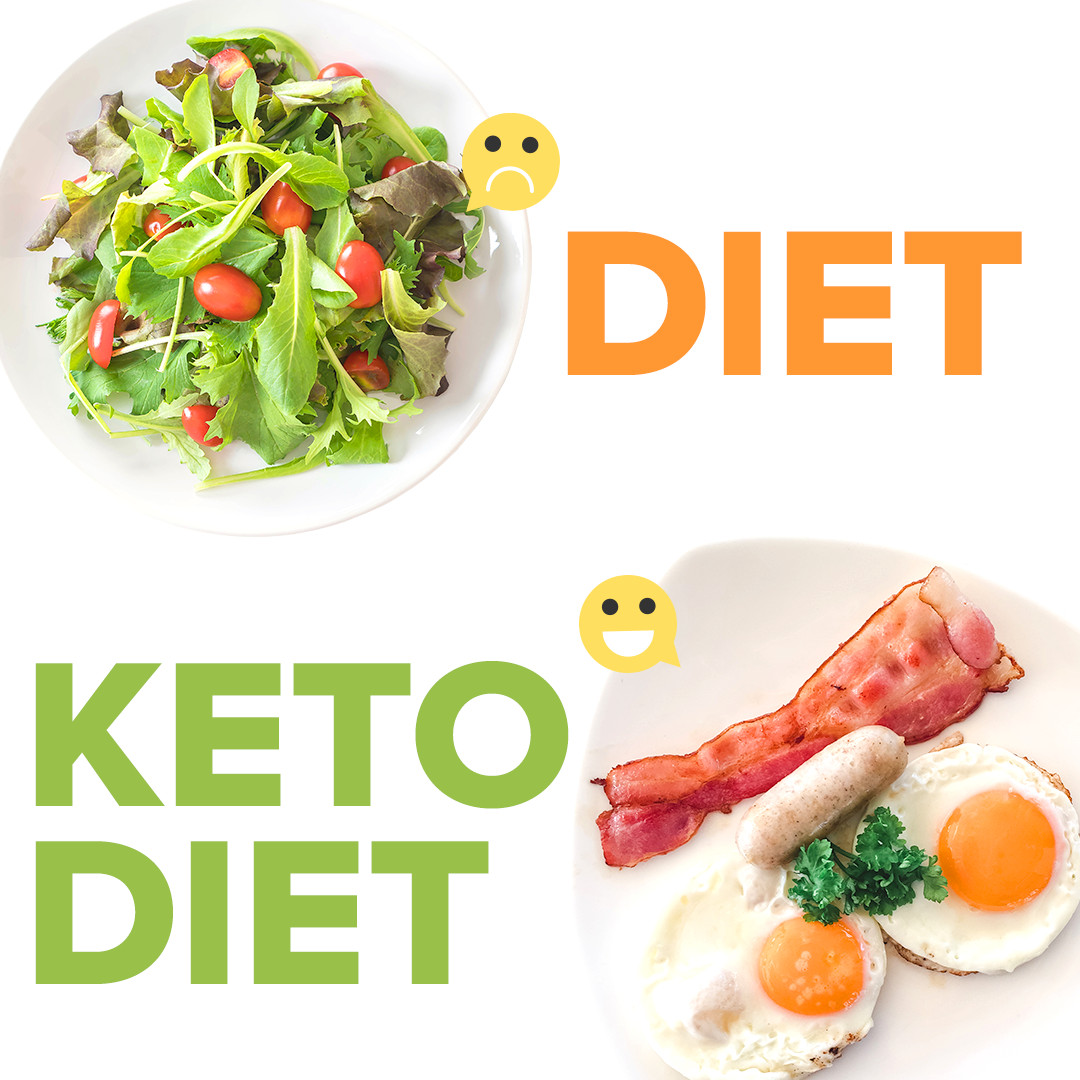What Is the Keto Diet?
The Keto diet involves going long spells on extremely low (no higher than 30g per day) to almost zero g per day of carbs and increasing your fats to a really high level (to the point where they may make up as much as 65% of your daily macronutrients intake.) The idea behind this is to get your body into a state of ketosis. In this state of ketosis, the body is supposed to be more inclined to use fat for energy- and research says it does just this. Depleting your carbohydrate/glycogen liver stores and then moving onto fat for fuel means you should end up being shredded.
You then follow this basic platform from say
1- Monday until Sat 12 pm (afternoon) (or Sat 7 pm, depending on whose version you read).
2- Then from this time until 12 midnight Sunday night (so up to 36 hours later) do your massive carb up...
(Some say, and this will also be dictated by your body type, that you can go nuts in the carb up and eat anything you want and then there are those that more wisely- in my view- prescribe still sticking to the clean carbs even during your carb up.)
So calculating your numbers is as simple as the following...
Calculate your required maintenance level of daily calories...
(if you are looking to drop quickly use 13- I would not advise this, if you want a more level drop in body fat use 15 and if you are going to actually attempt to maintain or possibly put on some lean muscle mass then use 17)
Bodyweight in pounds x 15= a
Protein for the day 1g per body weight in pounds= b
Bx4=c (c= number of calories allotted to your daily protein allowance).
a-c= d (d= amount of calories to be allotted to fat intake).
D/9= g per day of fat to be consumed.
The end calculation should leave you with a very high number for your fat intake.
Now for those of you wondering about energy levels... Especially for training because there are no carbs, with there being such a high amount of fat in the diet you feel quite full, and the fat is an excellent fuel source for your body.
(One adaptation that I have made is to actually have a nice fish fillet about an hour before I train and I find it gives me enough energy to get through my workout.) (I am aware of the arguments made to not have fats 2-3 hrs otherwise of training. While I won't have fats 2-3 hrs after training as I want quick absorption and blood flow then, I see no issue with slowing everything down before training so my body has access to a slow-digesting energy source).
Continuing with general guidelines...
There are some that say to have a 30g carb intake immediately after training- just enough to fill liver glycogen levels. And then.
There are those that say having even as much as that may push you out of ketosis- the state you are trying to maintain. As I have.
What Is the Keto Diet?
Done the post-workout shake for the last 8+ years of my training I have decided to try the "no post-workout" route! I figure I may as well try!
During my carb-up period- for the sake of those who would like to know if you can get in shape and sill eat the things you want
(in moderation)- for the first six weeks I will be relaxed about what I eat in this period but then the following 6 weeks I will only eat clean carbs.
I also like to make sure that the first workout of the week- as in a Monday morning workout- is a nice long full hour of work so I start cutting into the liver glycogen already.
I also make sure to have one last really grueling workout on Saturday before my carb up.
And I am eating a lot of fish, eggs, olive oil and beef!
Keto is everywhere; it's the new buzzword, the new favorite among those looking to shed pounds, and the new hate victim of the food-pyramid-spouting-eat-your-whole grains mainstream medical industry. The keto diet, while it is not the magic cure-all for every single disease on the planet, does a pretty dang good job at being the potential causer of healing many horrible conditions. So let's cut through the science, separate fact from fiction, and look at the benefits of the keto diet.
Benefit #1: Weight Loss
Okay, so this one isn't so astounding, but it is one of the most common reasons people embark on the keto diet. So why is weight loss usually so easy on the ketogenic diet instead of other regular diets? For all of the following reasons:
• The keto diet is composed of approximately 75% fat, 20 % protein, and 5% or fewer carbohydrates. The high-fat content and lack of sugar mean diminished cravings, lack of blood sugar swings and binges, and increased satiation. Increased satiation=eating less. Many people also have food sensitivities to grains, even gluten-free ones, so eliminating them may lead to an increased ability to absorb minerals like magnesium and potassium, which in turn means your body is more nourished and you have fewer cravings
• Ketones. When your blood sugar is running low, your body turns to its glycogen stores for energy. Typically glycogen stores house about 2000 calories of "backup" energy for when you run out of glucose. Like the intelligent machine it is, your body depletes the glycogen stores and then turns to your own body fat for fuel.
The ketogenic diet is not a free-for-all eat however much cheese or super low-carb fat bomb treats you want to diet. If you are eating way more calories than you need, you will not lose weight. So focus on keeping your diet around fatty cuts of grass-fed meat, butter, eggs, avocados, lots of green veggies, and cruciferous, and be modest with the keto desserts, dairy, and sweets.
Benefit #2: Brain Function
A poorly functioning brain, as you may have already experienced, leads to lessened work productivity, which in turn means an unhappy boss, lack of job satisfaction, sugar cravings for energy, and depression. It's a horrible domino effect. The original ketogenic diet was formulated by Dr. Russell Wilder in the early 20th century to treat epilepsy. The success rate was phenomenal and it is still used today to treat epilepsy and other brain disorders. Research also indicates that ketones are a more efficient brain fuel than glucose. (Source:https://www.ncbi.nlm.nih.gov/pmc/articles/PMC5102124/)
Benefit #3: Potential Cancer Benefits
One study showed implementing the ketogenic diet led to a dramatically increased survival time and slower tumor growth. (Source: https://www.ncbi.nlm.nih.gov/pmc/articles/PMC5450454/)
>>>>>>Click here to learn More<<<<<<
Important Disclaimer:
Articles provided are for general information purposes only and are not intended to substitute for informed professional medical, psychological, tax, accounting, legal, investment, or any other professional advice.
Source / Agency













Post a Comment